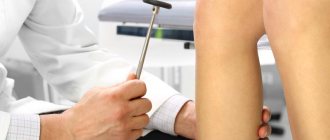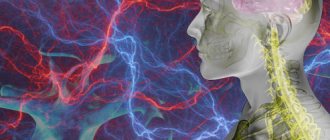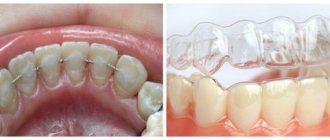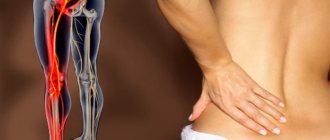Causes of numbness Associated symptoms Risks during implantation Risks during removal Diagnosis Treatment methods Possible complications Prevention
Reduced sensitivity and numbness (paresthesia) of the jaw are associated with dysfunction of the trigeminal nerve due to inflammation or damage. Patients may experience slight discomfort or serious difficulties with speech and chewing. Most often, patients complain of numbness in the lower jaw, although similar symptoms also appear in the upper jaw.
A comprehensive examination will help you figure out why your jaw goes numb. The reasons for this condition are different - from a side effect after dental treatment to a serious neurological disease. Paresthesia usually extends to part of the tongue, lips, chin, gums, and is accompanied by pain, burning, and discomfort.
If numbness occurs after dental surgery, you should contact the doctor who performed the procedure to prescribe the correct therapy. With minor nerve injury, paresthesia goes away on its own, but with prolonged numbness or serious damage, long-term treatment will be required.
Causes of jaw numbness
There are quite a few factors that can cause this symptomatology. Among the main reasons:
- accidental damage to a branch of the facial nerve during treatment, extraction, or prosthetics of teeth;
- exit of the filling mass into the mandibular canal;
- inflammation of the root region of the teeth;
- allergy to anesthetic, filling material;
- jaw injuries;
- neuroses;
- inflammation of the gums, middle ear;
- pathology of the orbital canal;
- TMJ arthritis.
In addition to dental pathologies, trauma to the facial skull, numbness and neuritis can occur against the background of frequent migraines, hypertensive crises, circulatory disorders, tumors, cervical osteochondrosis, infectious diseases, and deficiency of B vitamins.
Treatment
Different forms of cheilitis differ in their approach to treatment. Collectively, the impact may include:
- correction of the psycho-emotional sphere - a neurologist prescribes sedatives, tranquilizers, a psychologist or psychotherapist conducts appropriate psychotherapy;
- physiotherapy - treatment with laser, ultrasound, magnetotherapy, electrophoresis is prescribed locally; they relieve irritation and accelerate tissue regeneration;
- drug symptomatic therapy - non-hormonal anti-inflammatory drugs are prescribed; in case of severe inflammation - hormonal drugs;
- immunotherapy – strengthen the immune system by taking immunomodulators and immunostimulants;
- vitamin therapy - taking vitamins A, C, group B (mainly vitamin B2) is of great importance;
- surgical treatment – typical for glandular cheilitis with enlargement of the salivary glands; Both laser ablation with a surgical laser and direct removal of areas of the gland are used;
- antiallergic therapy with antihistamines.
Additionally, the doctor may prescribe diet therapy with the exclusion of foods that provoke allergies or chemical irritation of tissues (spicy foods, saltiness and marinades). When staying outdoors for a long time, it is imperative to use special protective equipment.
Associated symptoms
The clinical picture depends on the reasons why the jaw becomes numb. This may be a slight discomfort, slight tingling, burning, or a feeling of goosebumps. Additionally, the following symptoms may occur:
- excessive salivation;
- severe spasms (trismus) of the masticatory muscles;
- difficulty pronouncing some sounds, smiling, speaking, swallowing;
- impaired sensitivity of the lips and tongue.
Symptoms manifest in different ways. Numbness of the teeth of the lower jaw and chin, tongue, lips can be permanent or have a paroxysmal nature, cover the entire jaw or a small part of it, and manifest itself with greater or lesser intensity.
Symptoms
Numbness of the lips, regardless of the ongoing pathological processes in the body, is accompanied by the following symptoms:
- Feeling of “goosebumps” in the upper layers of the epidermis of the face;
- Itching or burning on the lower or upper lip;
- Changes in pigmentation in the area where tingling or numbness of the skin is felt;
- Loss of sensation extends to the cheeks, chin, nose and mouth;
- The skin feels cool;
- Painful sensations appear;
- Tingling in the upper layers of the skin.
For each disease, the symptoms are supplemented by certain signs that are unique to this disease. Therefore, it is important to determine the root cause and begin to treat it. Otherwise, irreversible consequences may develop, including loss of sensitivity of the entire face.
Risks of implantation
One of the complications with mandibular implantation is the risk of damage to the mandibular nerve. This can happen if the doctor calculated the size of the implants based on orthopantomogram (OPTG) data, rather than 3D tomography. As a result, during installation, the walls of the mandibular canal are damaged, a hematoma is formed, and the nerve is pinched. Reduced sensitivity of the innervation zone lasts 2-3 weeks
until the hematoma disappears.
Numbness of the lower jaw after implantation is a common complication for patients with osteoporosis. In this case, the wall of the alveolar process may be defective or completely absent. Compression of the nerve occurs due to hemorrhage into the medullary space and tissue edema. Paresthesia occurs the next day after the intervention and persists for about 7-10 days
. If sensitivity is not restored, the implant is removed and complex treatment is carried out.
Numbness of the teeth of the upper jaw after implantation is less common. Innervation of the maxillary structures is produced by three groups of branches of the facial nerve. Such a structure is quite difficult to damage. Loss of sensitivity of the upper lip and part of the cheek can occur when the alveolar branches or dental plexus are damaged in conjunction with perforation of the bottom of the maxillary sinus.
Characteristic
Numbness of the lips, or scientifically “paresthesia,” is a loss of sensitivity in the upper layers of the epidermis on any part of the face. This condition can occur due to a number of reasons. The main factor provoking the formation of the symptom is a strong weakening of the patient’s immune system.
The manifestation of such symptoms signals the development of some problem in the body. If the upper lip is numb, this indicates a lack of vitamins or microelements in the internal organs. The disease can act as a side effect from previously suffered serious illnesses.
The development of paresthesia is triggered by problems in the conduction of nerve endings. The latter belong to different parts of the central nervous system of sensitive or peripheral types.
The disease affects elderly people or patients with a predisposition to the pathological process. People who are often in stressful situations or have problems with teeth or gums complain of loss of sensitivity in the upper layers of the epidermis. Numbness is observed in patients with neurotic disorders or in those patients who have endocrine diseases.
If there is numbness of one lip or both at once, the warmth of the fingers and pain are not felt when touching. In this case, there is sensitivity of the skin on the lips when touched or pressed with fingers. The process develops due to damage or irritation of nerve endings, and can also be triggered by disturbances in the circulatory system.
If numbness appears in one area for a long period of time and does not go away, then loss of sensitivity is a sign of complete death of nerve endings. Therefore, if discomfort occurs on the skin of the face, it is recommended not to hesitate, but to immediately consult a doctor.
Risks of tooth extraction
Complex extraction of a tooth with a developed or deformed root system is always accompanied by the risk of damage to the branch or alveolar plexus of the trigeminal (facial) nerve. The likelihood of such a complication is especially high during the extraction of third molars (wisdom teeth). Jaw numbness after wisdom tooth removal can last from several weeks to several months. If unpleasant symptoms persist longer than 10-14 days
you need to contact the dentist who performed the removal.
Diagnosis of cheilitis
There are no specific laboratory tests to detect cheilitis. All diagnosis of the disease is carried out by visual examination. To determine the causes of inflammation, diagnostics of the gastrointestinal tract may be prescribed for the presence of Crohn's disease or ulcerative colitis. Additionally, allergy tests are performed to exclude food allergies.
General laboratory tests allow you to check the condition of the body and determine the possible causes of cheilitis:
- low levels of vitamins due to hypovitaminosis can provoke exfoliative cheilitis;
- bacterial cultures of smears and biopsies are performed in patients with immune system disorders in the absence of results from the treatment;
- testing for markers of HIV infection, herpes, the presence of fungal or bacterial microflora, respectively, allows us to identify the viral, bacterial or fungal causative agent of cheilitis;
- a blood test for anemia, ESR are required to assess general health;
- examination of the function of the thyroid and pancreas for endocrine pathologies.
On a note! Cheilitis tends to be chronic with periodic relapses. Self-healing without medical supervision is almost impossible, so try to pay attention to such a “minor” problem and consult a specialist. Diagnosis of the disease is carried out by a general practitioner or attending dentist. In some cases, consultation with an allergist, infectious diseases specialist, dermatovenerologist or gastroenterologist may be required.
Diagnostics
Diagnosis for partial or complete numbness of the teeth of the upper jaw and mandibular structures includes:
- Dental examination
to assess the general situation and provide a preliminary diagnosis. If during the examination the doctor finds a displacement of the implant or a nerve injury, further examination is of a clarifying nature. - Consultation with a neurologist
to assess the neurological status of damage to the branches of the trigeminal nerve. A specific study aimed at testing reflexes, determining sensitivity, to identify the presence/absence of nerve damage. - X-ray, CT scan of the jaw
- allow you to accurately determine the cause of loss of sensitivity. Thanks to digital equipment, it is possible to calculate the direction and degree of implant displacement down to the millimeter, determine the focus of degeneration, and identify inflammation or damage in the area of innervation disturbance.
After the initial diagnosis and establishment of the exact reason why the lower jaw or upper half of the cheek is numb, the doctor will prescribe an effective treatment. According to indications, other specialized specialists may be involved in treatment: neurologist, allergist, ENT, etc.
Causes
Cheilitis is a polymorphic and multifactorial disease that can be triggered by infections, physical and chemical environmental factors, as well as internal characteristics of the body. Among them:
- constant exposure to the open air - inflammation and peeling of the lips occurs when chapped by hot or cold air, excessive insolation;
- the presence of chronic diseases with skin manifestations of symptoms - various types of dermatitis, psoriasis, lupus erythematosus, lichen planus, syphilis, etc.;
- allergic reactions of the body - mainly with food allergies;
- tissue irritation from regular exposure to chemicals, including medications (for example, nasal drops);
- various neurological disorders, severe stressful situations, depression, constant anxiety;
- endocrine abnormalities - primarily hyperfunction of the thyroid gland, diabetes mellitus.
Treatment methods
If a nerve trunk, branch or nerve plexus is damaged or compressed, there are two ways to solve the problem - therapeutic and surgical. Conservative therapy is indicated for incomplete loss of sensitivity, if the tooth periodically becomes numb after treatment and the symptoms do not worsen. Therapeutic treatment includes medication and physical therapy.
The operation is indicated if the feeling of numbness of the upper jaw or mandibular structures is associated with trauma during sinus lifting, displacement of bone mass, dentures, implants, or complete loss of sensitivity of the innervation zone. During the intervention, the cause of paresthesia is eliminated and the damaged nerve is reconstructed.










